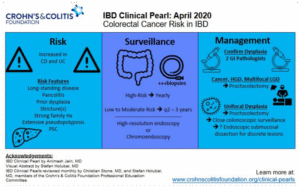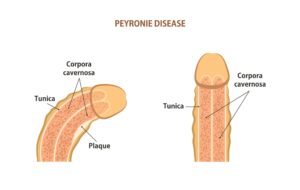Oral Thrush_ Prescription Treatments and Home Remedies
Oral Thrush: Prescription Treatments and Home Remedies
Introduction to Oral Thrush
Oral thrush, also known as oral candidiasis, is a fungal infection that can affect both adults and children. It is caused by an overgrowth of the fungus Candida, typically Candida albicans. The infection often appears as white patches on the tongue, inside the cheeks, and the roof of the mouth. For most cases, antifungal medications like lozenges and oral solutions are effective treatments. While some mild cases of oral thrush may resolve on their own with home remedies, more severe cases or infections that don’t improve within two weeks require professional medical attention.
Understanding Candida and the Immune System
Candida is a fungus that naturally resides in the mouth, skin, and other mucosal surfaces of the body. Under normal circumstances, it is kept in check by the immune system. However, when the immune system is weakened or the natural balance of microbes in the body is disrupted, Candida can grow uncontrollably, leading to candidiasis (a type of yeast infection). Factors such as stress, illness, or the use of certain medications like antibiotics or steroids can cause this disruption, allowing Candida to thrive.
Prescription Treatments for Oral Thrush
Antifungal medications are the standard treatment for oral thrush. These medications can be taken in various forms, such as topical solutions or oral medications. The goal is to reduce the fungal overgrowth and relieve symptoms. Here’s an overview of common prescription treatments for oral thrush:
Topical Antifungal Treatments
For mild cases, topical antifungals are the first line of defense. These treatments are applied directly to the affected areas in the mouth. Some common topical antifungal options include:
-
Clotrimazole Lozenges: These lozenges contain 10 mg of clotrimazole and are typically taken five times a day for 7 to 14 days. The lozenges should be allowed to dissolve slowly in the mouth, without chewing or swallowing.
-
Miconazole Buccal Tablets: These tablets contain 50 mg of miconazole and should be taken once daily for 7 to 14 days. The tablet is placed between the gum and cheek and allowed to dissolve completely.
-
Nystatin Suspension: This oral suspension contains 100,000 units of nystatin per milliliter and is taken four times a day for 7 to 14 days. The liquid should be swished around the mouth for at least 30 seconds before swallowing.
Oral Antifungal Treatments
For more severe cases or when topical treatments fail, oral antifungal medications may be prescribed. These include:
-
Fluconazole: This is the most commonly prescribed oral antifungal. The initial dose is typically 200 mg, followed by 100 mg once a day for 13 days.
-
Itraconazole and Posaconazole: If fluconazole is ineffective, these medications may be used as alternatives. Itraconazole is taken daily for 28 days, while posaconazole is taken in a two-phase dosing regimen.
Home Remedies for Oral Thrush
In addition to prescription treatments, several home remedies can help manage symptoms of oral thrush and promote healing. These methods are most effective for mild cases and can provide relief from discomfort:
1. Maintain Good Oral Hygiene
Keeping the mouth clean is crucial for managing oral thrush. Brush your teeth, gums, and tongue with a soft-bristled toothbrush twice a day. Floss daily and rinse with water after eating. For individuals who wear dentures, regular cleaning and disinfecting of dentures are necessary.
2. Saltwater Rinses
Rinsing the mouth with warm saltwater can help alleviate symptoms and control bacterial growth. To make a saltwater rinse, dissolve 1/2 teaspoon of salt in one cup of warm water. Gargle for 10 to 15 seconds, then spit. Repeat several times throughout the day.
3. Baking Soda Rinses
Baking soda can help neutralize acids in the mouth and slow the growth of Candida. Dissolve 1/2 teaspoon of baking soda in one cup of warm water and swish it around the mouth for 10 to 15 seconds before spitting it out.
4. Yogurt and Probiotics
Yogurt containing live cultures of Lactobacillus acidophilus may help restore the natural balance of bacteria in the mouth. While its effectiveness in treating oral thrush remains unproven, consuming probiotic-rich yogurt or supplements may help improve overall oral health.
5. Avoid Sugary Foods and Drinks
Yeast thrives on sugar, so it’s essential to avoid sugary foods and drinks, such as soda, fruit juices, and sugary snacks. Opt for sugar-free smoothies or low-sugar alternatives instead.
6. Cold Foods and Drinks
Cold foods and beverages can soothe the burning and itching sensations associated with oral thrush. Consider consuming ice water, popsicles, frozen yogurt, or chilled soups for relief.
When to Seek Medical Attention
While oral thrush can often be treated with home remedies and prescription antifungals, it’s essential to consult a healthcare provider if the infection worsens or doesn’t improve within two weeks. Additionally, medical attention is necessary if the infection spreads or is accompanied by other symptoms such as fever or fatigue.
Factors That Contribute to Oral Thrush
Oral thrush can develop for several reasons, including:
-
Weakened immune system due to conditions like HIV, cancer, or diabetes.
-
Medications such as antibiotics or inhaled steroids that disrupt the natural balance of bacteria in the mouth.
-
Dry mouth (xerostomia), which encourages yeast growth.
-
Nutritional deficiencies, including a lack of iron or vitamin B12.
-
Poor oral hygiene, smoking, or wearing ill-fitting dentures.
Frequently Asked Questions (FAQs)
What Are Over-the-Counter Treatments for Oral Thrush?
Over-the-counter antifungals like Lamisil (terbinafine) are not designed for oral use. They are typically used for skin infections such as athlete’s foot or jock itch.
What Are the Risk Factors for Oral Thrush?
Several factors increase the risk of developing oral thrush, including age (newborns and the elderly), a weakened immune system, use of antibiotics or steroids, dry mouth, and poor oral hygiene.
Do I Need to See a Doctor?
If you experience persistent or severe symptoms, or if the infection is spreading, it’s important to seek medical advice for appropriate treatment.
Conclusion
Oral thrush is a manageable condition with the right treatment approach. Whether using antifungal medications or home remedies, it’s essential to address the infection early to prevent complications. For severe or persistent cases, always consult a healthcare provider for the most effective treatment plan.







